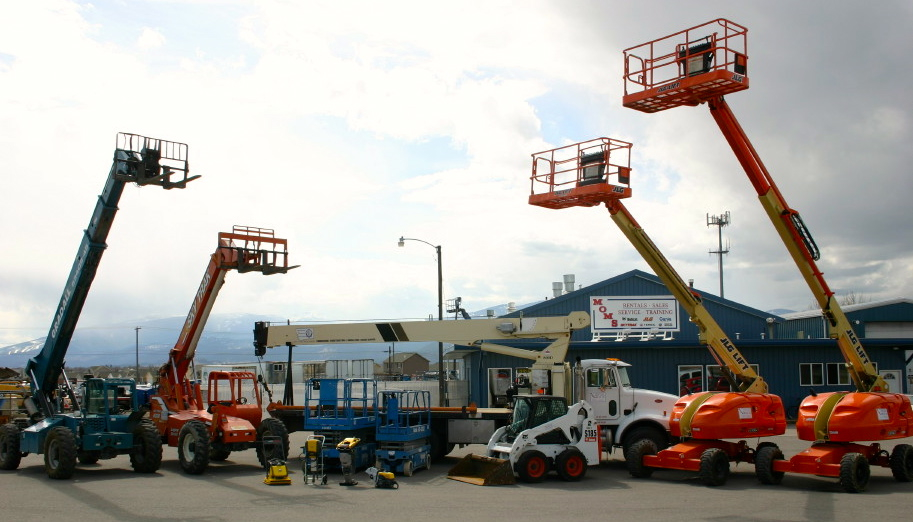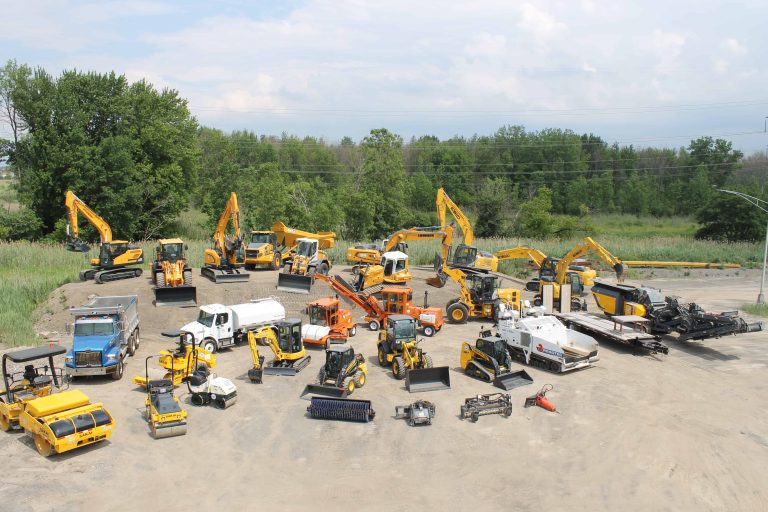Heavy Equipment Rental: Huge Machinery for Any Type Of Construction Task
Heavy Equipment Rental: Huge Machinery for Any Type Of Construction Task
Blog Article
Maximize Your Budget Plan by Comprehending the Expenses Related To Construction Equipment Rentals
Understanding the full range of prices associated with construction tools services is important for optimizing your spending plan. What techniques can be used to successfully take care of these prices and guarantee a more effective rental experience?
Summary of Rental Costs
When considering construction tools leasings, recognizing the linked costs is extremely important for efficient budgeting and task planning. Rental costs can differ considerably based upon several aspects, consisting of equipment kind, duration of service, and location. The first rental fee often shows the tools's market demand and its connected functional capabilities, affecting the overall cost.
Along with the base rental rate, supplementary prices might occur, such as transport fees, fuel additional charges, and upkeep costs. It is important to account for these extra costs to properly assess the complete cost of leasing tools. Furthermore, the rental period can affect pricing; longer services may get reduced rates, while temporary services might incur higher everyday costs.

Failure of Rental Prices
A detailed understanding of rental rates is crucial for service providers and task supervisors aiming to optimize their budgets. Rental rates for construction tools commonly include a number of parts, consisting of base prices, time-based fees, and usage costs.
Base prices are the core charges related to the leasing of the equipment, often established by the kind and size of the equipment. These prices can vary significantly, affected by aspects such as equipment need, schedule, and local market patterns. Time-based charges, which might be daily, weekly, or monthly, serve to suit various job timelines and rental durations.
In addition, rental rates might include use charges, which are appropriate when tools is used beyond a defined limit, guaranteeing that the rental firm can represent wear and tear. Seasonal need fluctuations can likewise impact rental rates, with peak building seasons normally commanding greater rates.
In addition, recognizing the rental firm's policies regarding maintenance and insurance can give further understanding into the overall expense framework. By evaluating these parts, specialists can make enlightened decisions, making certain the selection of rental tools lines up with both project demands and budget restraints.
Added Charges to Consider
Recognizing the details of extra costs is vital for specialists to manage their overall service expenditures properly. Past the basic rental prices, different supplemental charges can significantly impact the complete cost of equipment service. These fees usually consist of shipment and pick-up costs, which can vary based upon range and logistics associated with transporting the equipment to and from the work site.
In addition, some rental business might impose gas surcharges if the equipment is returned with less gas than when rented out. It is additionally vital to know prospective cleaning costs, particularly for customized equipment that requires detailed maintenance after use.

Extensively reviewing the rental contract and clarifying these added costs upfront can assist specialists make sure and avoid unforeseen prices that spending plans remain intact throughout the project lifecycle.
Repair And Maintenance Costs
Routine maintenance and repair work expenditures are usually neglected elements that can considerably influence the overall price of building equipment leasings. When renting out devices, it is essential to take into consideration not only the rental charges but additionally the potential costs connected with maintaining the machinery in ideal operating problem.
Several rental business consist of standard maintenance as part of the rental contract; nevertheless, more unforeseen break downs or considerable repair work can cause additional expenditures. It's vital to evaluate the rental contract meticulously to understand what upkeep solutions are covered and what obligations drop on the renter.
Furthermore, devices that is not well-kept can bring about inefficiencies on duty website, potentially triggering hold-ups and raising task prices. To minimize these threats, it is a good idea to carry out routine evaluations and preserve open communication with the rental service provider relating to any type of problems that develop during use.
Insurance Coverage and Responsibility Prices
Insurance policy and responsibility costs are essential parts that can considerably impact the overall expense of building and construction tools leasings (forklift rental). These costs make certain that both the rental firm and the client are shielded from potential monetary losses developing from crashes, damage, or theft throughout the rental period

In addition, clients should be conscious of any kind of deductibles or exclusions in the insurance plan, as these can impact potential out-of-pocket expenditures. Recognizing the conditions of any kind of insurance coverage is essential to prevent unforeseen costs. Ultimately, budgeting for insurance and responsibility expenses can aid ensure a smoother rental experience and protect against economic dangers related to building jobs.
Final Thought
In conclusion, a thorough understanding of the expenses connected with building and construction tools rentals is essential for effective budget plan administration. Ultimately, informed decision-making concerning equipment services adds to the total success of building and construction ventures.
Rental expenses can vary dramatically based on several elements, including equipment type, duration of leasing, and location (scissor lift rental). The rental period can affect prices; longer leasings may certify for Recommended Site discounted rates, while temporary services may sustain higher day-to-day fees
By performing thorough research and involving with trusted rental More Bonuses firms, specialists can effectively browse the complexities of rental pricing, inevitably optimizing their financial resources.
Past the conventional rental prices, different extra charges can substantially impact the complete price of tools leasing. Rental companies typically provide liability insurance that covers injuries to 3rd parties or damage to property, while devices damages insurance can cover the price of repairs or replacement if the rented out tools is damaged.
Report this page